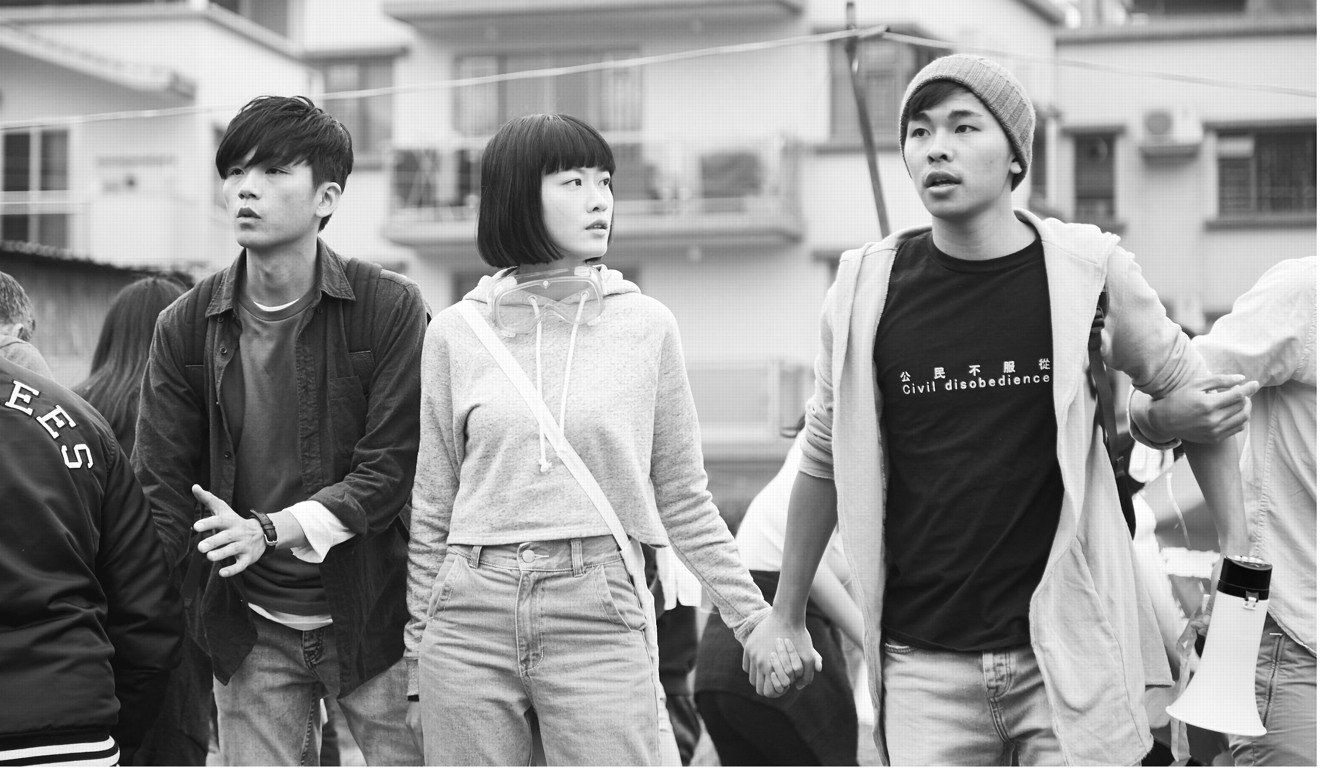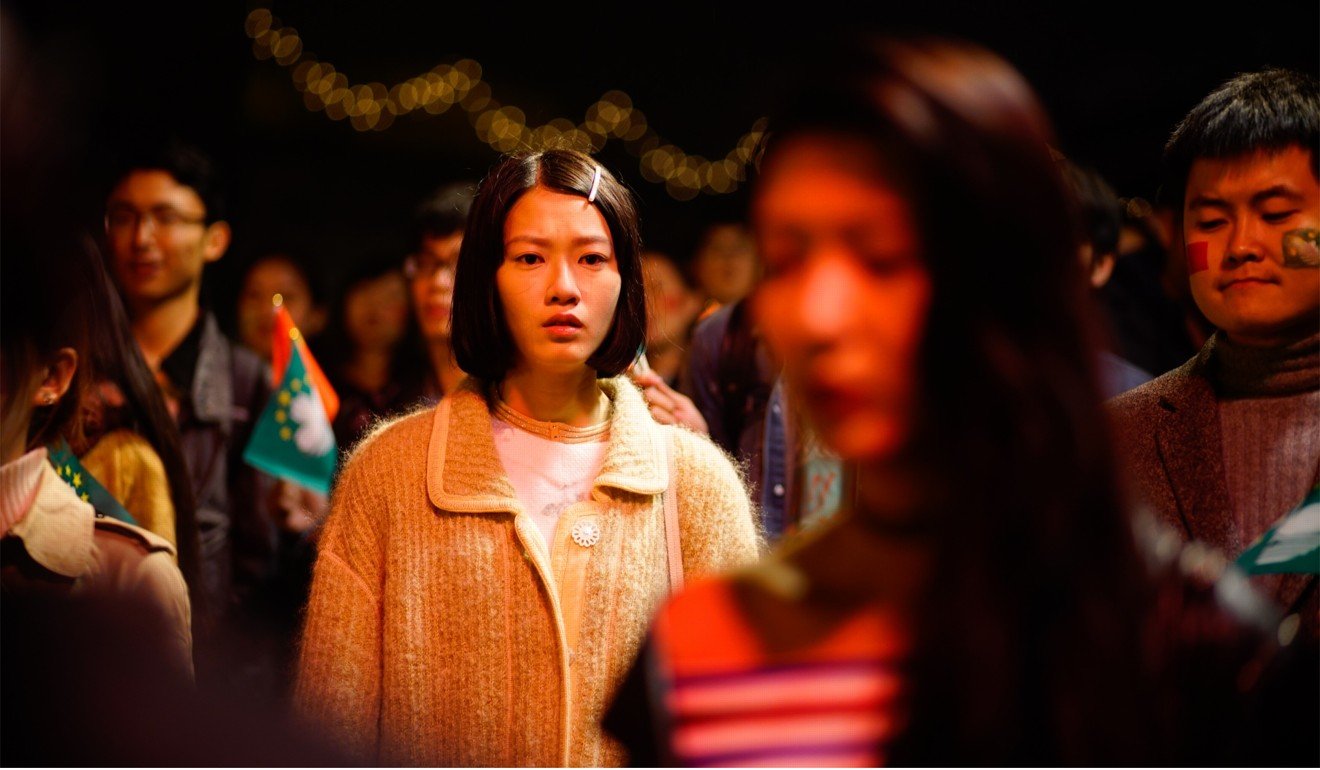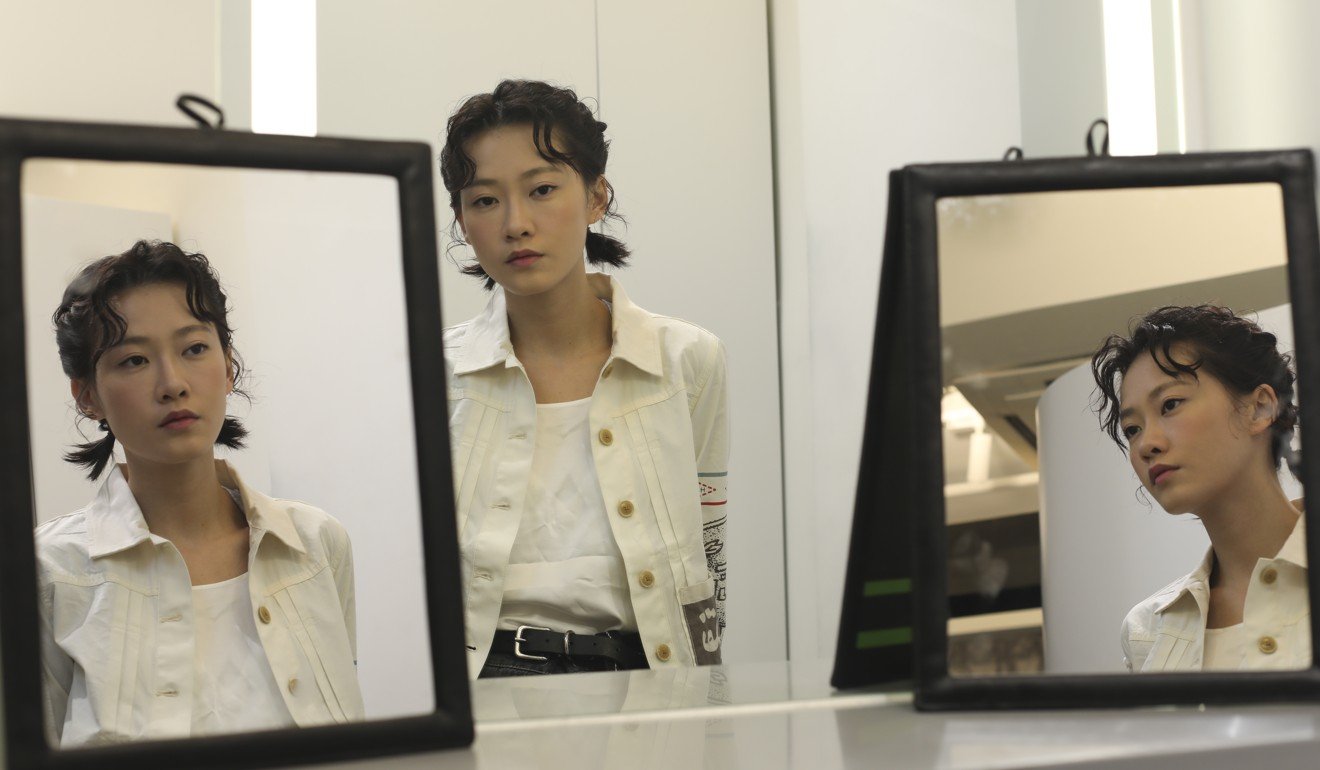
Actors lead glamorous, privileged lives – or so we think. Yet that is hardly the case for Fish Liew Tsz-yu, star of award-winning Hong Kong films No. 1 Chung Ying Street (2018) and Sisterhood (2016), who shares the woes of residents in the world’s priciest housing market.
“I wish I could live in a bigger flat, but the rent here is so expensive,” says Liew, who lives in a 200 sq ft flat in a modest Hong Kong neighbourhood.
The tiny flats, a general lack of space and the common practice of sharing tables with strangers at restaurants contributed to the culture shock Liew felt as a fresh graduate from Malaysia when she arrived in Hong Kong in 2012, clutching a plush toy in one hand and her luggage in the other.
Seven years and three major roles later, Liew, the Youth Ambassador of this year’s Asian Film Awards, looks back at her uneasy path and admits she still feels insecure.

We catch up with Liew as she gets ready to appear at an event. Posing for the camera, she seems poised and assured, well-trained from years of modelling between acting gigs. In conversation Liew, although a little jittery, speaks with refreshing candour.
With her fluent Cantonese and encyclopedic knowledge of Hong Kong cinema, it is easy to forget that Liew is not from the city. Born in Johor Baharu, she grew up in Kuala Lumpur in a strict household and hardly ever went out. When she did, “I had to apply a week in advance, telling my mom who I am going out with, where and so forth”, says Liew.
Her father, a chef who worked abroad, was largely absent during her childhood. Whenever he returned, however, he brought with him an endless supply of pirated VCDs, which Liew, confined to her home, spent most of her time watching. Films took the Malaysian girl beyond the walls of her home, constructing a world she did not have a chance to see.
“Hong Kong movies had a strong influence on my world view and values,” she says.
Though Liew, a natural performer, had considered studying fine arts or theatre, she opted to study for a degree in broadcasting “because it was the school’s cheapest programme” and “my mom was worried I wouldn’t be able to make a living”.

She did some modelling and took on some bit-part acting roles while a student. An internship as a videographer convinced her she did not want to spend the rest of her life stuck in front of a computer screen, so once she graduated, she implored her parents to let her venture out.
“I sent my portfolio to many different places, Bangkok, Taiwan, Japan, Beijing – not Singapore because it is too near. I just wanted to leave as quickly as I could,” says Liew, who jumped at the first offer and came to Hong Kong as a model.
Though job opportunities, such as beauty and fashion features in magazines came rushing in, she soon realised they only paid enough to cover her rent. “I had no money left. I even owed the company money, because I had to take advances to live,” she recalls. “I was really dejected and thought I’d go back after a few months.”
I need to become an actor that’s irreplaceable – Fish Liew
The city was also not what she had imagined from seeing Ann Hui and Johnnie To movies. “I would take the tram to Central and Sheung Wan and walk around, reminding myself I am in Hong Kong,” says Liew.
The turning point came when she was cast in her first film, Doomsday Party (2013), which came with one condition – a nude scene. Before making the decision, she informed her parents, who urged her to think it through.
“My family is not rich. They never insisted that I have to be a lawyer or doctor. They didn’t have that kind of aspiration. And they never try to restrict me,” says Liew, who pressed her father for an answer. When he eventually voiced his support, she broke down crying.

“I am really thankful that they didn’t say things I was scared of hearing, such as threatening to disown me,” says Liew.
She also had to overcome her own mental barrier. “I started out as an extra, so I know how difficult it is to land a lead role. Starring in a Hong Kong film was a distant dream and I needed the first step. No matter how unwilling and uncomfortable I was, I wanted the opportunity.”
With that, she braved the shoot and extended her contract, “thinking things would go uphill from there”. To her surprise, and later dismay, despite the success of the film it would be another three years before she was cast again.
As you age, the only roles you can play are mothers. But I don’t want to play a mother – Fish Liew
“I felt rather lost,” says Liew, recalling that long period of uncertainty. “I don’t even remember how I pulled through.”
It was perhaps this desperation that made her say yes to her next role, in the mediocre Lazy Hazy Crazy (2015); playing one of three schoolgirls engaging in compensated dating, she was once again required to strip.
Liew endured emotional turmoil when the film came out. Conservative elements in Malaysia condemned her, putting Liew and her family at odds.

Fortunately, and in spite of the controversy, she caught the eye of filmmakers and soon established herself as an emerging actress. Her role as an innocent masseur in Sisterhood earned her a nomination for best supporting actress at the Hong Kong Film Awards. Then she proved her mettle as the lead actress in No. 1 Chung Ying Street, playing an ingénue confronted by harsh realities.
With several films under her belt and a few more in the making, you would think the pressure has lessened, but no. For one thing, Liew, who has played mostly schoolgirls and young adults in coming-of-age films, is turning 29 at the end of this month. “I hate it when they report my age,” she says.
Liew points out how few roles there are for older women and films centred on female characters. “As you age, the only roles you can play are mothers. But I don’t want to play a mother. Even if I do, I want to be one with a story and not the mother of the lead actress.”

This is one of the reasons she doesn’t want to be only an actress, but also, one day, a film director who writes her own scripts. As a Malaysian, another goal is to return and contribute to the Chinese film industry in her home country, giving opportunities to local peers who are often passed over by an industry that favours foreign actors.
But for now, Liew is focusing on acting, and remembers well what Pang Ho-cheung, producer of Lazy Hazy Crazy, told her about the realities of the film industry and the strong competition for roles: there may be only one Fish Liew this year, but there can easily be three others like her next year.
“The precarious and uncertain nature of the job can be very overwhelming,” she admits. “I need to become an actor that’s irreplaceable.”
Want more articles like this? Follow SCMP Film on Facebook







